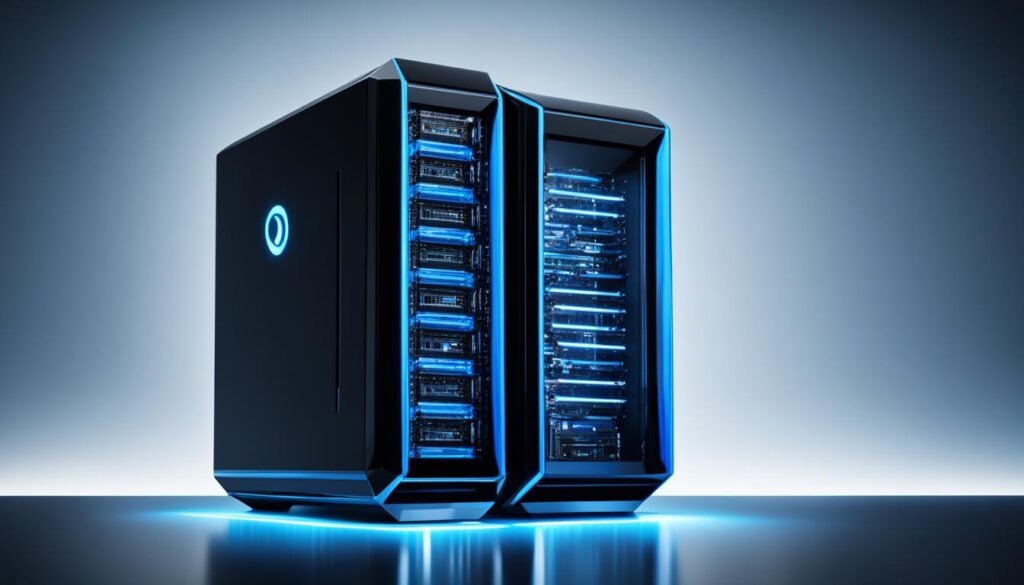This article has been created with a little humor and fun, focused on the topic : How to Buy a Quantum Computer, as we know they are not readily available and only for specific organizations if you have considerable funds, so please enjoy.
But the question of how you’d actually buy a quantum computer if you wanted one is also kind of fascinating. Today, it’s all a bit hazy. It’s not like you can to buy a desktop quantum computer off Newegg.com, or pop down to you local PC World (remember going there?) and pick one up off the shelf. Quantum was a well-read word – but only by scientists, in abstracts of academic papers and in science fiction that only the nerdiest of nerds really knew. And actually – more to the point – understood.
Quantum computing is ready to make its introduction onto the world tech stage. It is projected to be a computational Behemoth, slaying current supercomputer abilities as easily as Hercules tackled his 12 labors. Imagine your toughest issue, currently etching away your sanity with its intricacy, suddenly becomes exactly what sweet little tic-tac-toe is to a 2 year old. Let’s stop at the allure of that, however.
The quantum computer, right now, is not on the shelf at your local electronics store. It is anything but a casual swipe at the Apple store or Best Buy. It is everything opposite from what the words “impulse buy” induce. This quantum computer buyer’s guide will delve you into the colosseum of what is realistic for purchasing the most fabulously ruled-defying technical thrill ride most only dream there was a market for.
Quantum Computing technology acquisition, or even just exploring quantum through the mystique of buying a quantum computer online, should be approached very differently than if you were just buying something like a laptop. You aren’t just shopping for toys, you’re dipping your toe into the very beginning of the future, or at least the way that future will be calculated and solved at the quantum level.
Table of Contents
Key Takeaways
- Understanding the basics of quantum computing is crucial for any potential quantum computer buyer.
- Quantum computers are more of an investment for specific professional or educational applications than a general-use device.
- Practical uses of quantum computers currently pivot towards specialized fields needing substantial computational power.
- The quest to acquire a quantum machine involves deep financial considerations, unlike traditional computer purchases.
- Assessing use case and necessity is paramount before diving into the nascent quantum market.
- While buying a quantum computer online is possible, it warrants research, financial readiness, and a hefty dose of technological savvy.
Understanding Quantum Computer Capabilities and Limitations
Prior to delving into the thrilling, even if costly, pursuit of obtaining a quantum computing instrument, it is crucial to comprehend qubits’ conjuring and restraint. Quantum computing is not just about taking the less-traveled road. It is about pathfinding in the underlying structure of reality itself. We will illuminate the rudiments of quantum machinery, their powers, quantum Herculean tasks, and realistic demarcations that fix them in the physicist’s lab rather than in your home office.

The Fundamentals of Quantum Computing
Quantum computation is at its core supported by qubits, fickle by their very nature, free from the binary shackles of the digital world, able to exist in a state of superposition which allows them to take a ‘yay/nay’ attitude to data storage. It’s this one property that underpins the extraordinary potential within quantum processors, allowing them unfathomed dexterity in handling quantum algorithms. But superposition also introduces another level of complexity, as straightforward as playing quantum Twister, where waves ruffle with every twitch from Schrödinger’s cat.
Quantum Computing vs. Classical Computing
Comparing quantum computing to classical computers is akin to comparing a T-Rex to a chicken. Both have humble origins, but the difference in capability is astronomical. Classical bits are limited, binary options: a rigid 0 or 1. In contrast, qubits have the mesmerizing ability to exist in multiple states at once–redefining computing as a beautiful choreography of potentialities. This effectively allows quantum computers to perform certain calculations–like factoring incredibly large numbers–that would leave conventional machines wheezing for breath.
Real-world Applications of Quantum Computers
The story of potential applications of quantum computing is like shaping the next episode of a captivating sci-fi series—rich in opportunities yet full of tension. Just go to Google’s Sycamore processor, which beautifully executed a complex choreography problem, making classical computers falter. Given its clear benefits for machine learning and data analysis, the hype around these emerging computing powerhouses is quite palpable.
So, whether you’re after the glamour of breaking cryptography’s norms or driving machine learning into bizarre territories, the question of where to purchase quantum computers and what the best quantum computer to purchase is will be a journey coated in the anticipation of an exotic tomorrow.
Assessing Your Quantum Computing Needs
As you prepare to take the plunge into the quantum realm, you’ll need to answer a crucial question before you buy: what are your quantum computer needs? The possible goals of using such a machine can be broken down.ّ Whether you want a quantum machine for research, to protect data, or to advance education, you’ll need a different kind of machine for each task. It’s important to understand that buying a quantum computer is nothing like choosing a toaster; it’s more about finding the right partner on your futuristic journey.

Identifying the Purpose: Research, Security, or Education
Do you want to figure out the secrets of the universe, or do you want to keep state secrets safe? Or are you laying the foundation for the next generation of scientists, starting with training their minds on quantum physics? The primary function of what you’re going to use the quantum computer for – research, security, education – will make the difference between it being a one-day wonder or a lasting investment. Whether you’re a pioneer seeking to expand the astronomical frontiers of knowledge, or you’re a guardian in search of an impenetrable defense against a new kind of hacker, or you’re a visionary planning to turn school into a second home for the amusements of quantum mechanics.
Comparing Quantum Computing Devices and Their Use Cases
Not all snowflakes are alike, but they are similar in make up. The same can be said for quantum computers, though they are a bit more complicated. And because no two quantum computers are precisely identical, purchasers must be broadly knowledgeable in the choices.
Will you adhere to the quirks of photonic qubits, with their stability, or back the veteran spin qubits, who are largely immune to temperature changes? Different types of qubits – superconducting and trapped ion qubits also get mentions in the video, albeit briefly – actually speak totally different quantum dialects, and what they can and can’t do vary widely.
If a computer is built with one kind of qubit, it may be good at one type of application, but will always be horrible at another. Buying a quantum computer online is not like buying any other computer; it’s like going into a LARP with different rules. Purchasing a quantum computer isn’t a click-to-buy electronic transaction, it’s a strategic play planned out carefully in choosing each piece to make up the whole superconducting qubit apparatus reminiscent of knights on a chessboard.
How to Buy a Quantum Computer
If one is attracted to possessing a slice of what the days to come would hold, then it will not be out of place for a follower who wishes to purchase a quantum computer to check through the guide that is associated with the buying of this super device.
For you to buy a quantum computer, you should be resolute in the decision to purchase as no one has publicly taken on this move in the past. More also you must understand the fact that buying a quantum computer is like buying a totally different thing and this is because the act of buying it is the act of delicate dance.
It is a dance that involves the art of buying it with cold cash and on the other hand bargaining with the brain. As you start your journey into the world of buying a quantum computer, you must be ready to see what you are about to venture into as the art of bargaining for a quantum computer is not going to be something that can be explained by likening it to the thought that is associated with traditional buyers.
This cheat sheet that you are about to get will make you understand that in buying a quantum computer, more work is actually done to get a quantum computer than to get the traditional computer that we are used to.

If you’re hesitant to take the first steps into the intricacies of quantum mechanics or are ensconced inside the topic with an advanced degree-level expertise, this book offers help for all.
A PhD in a relevant field would come in handy at points, but don’t be discouraged when the going gets tough. Let’s take an honest look at the lay of the land, the jagged peaks and smoldering craters that represent the ever-fascinating science of the quantum.
- Purchase Outright: For those with coffers that make Fort Knox blush, buying outright is akin to winning the lottery—only you’re the only player, and the jackpot is a shiny quantum gizmo.
- Lease Access: Lease a quantum computer, and flirt with greatness without the constraints of ownership. Think of it like dating a genius—thrilling, with no long-term strings attached.
- Construct One by Yourself: Who doesn’t love a challenging DIY project? Especially one that might potentially disrupt the time-space continuum—it’s the ultimate ‘some assembly required’!
So buyers, when you equip your wisdom and your wallets, remember that the world of purchasing things at a quantum scale is not for the faint-hearted or for those with shallow wallets.
Keep thinking and planning and use this guide to drive away the feeling of regret on a quantum scale. In conclusion, while the attraction of purchasing things at a quantum scale is strong, watch how you move, because the quantum world is not where those go who make sudden purchases—they go where they have a bigger idea.
Navigating the Quantum Computer Marketplace
Quantum computing can be absolutely bewildering. Despite the technology still being in its infancy, there’s a lot of big companies trying to create the first quantum chip. What’s the best choice for someone that’s really interested in quantum computing? Should you get hardware, software, or services? What even are the biggest problems we need to solve?

Commercially Available Quantum Computers
If you are prepared to align your fate with quantum stars, the Rigetti Quantum Computer is now available. With a 9-qubit capacity, it is priced at a modest $900,000. That being said, the SpinQ Desktop Quantum Computer is also a good option for those who are interested in quantum computing.
It has a more reasonable price of $5,000 and three NMR qubits. The D-Wave Quantum Computer continues to be the ultimate challenge for businesses. Using quantum annealing technology, the D-Wave Quantum Computer is an essential tool for businesses with strong financial backing.
Practical Aspects: Cooling, Operation, and Support
Owning a quantum gem is a challenge that is not for the faint of heart. Once you get past the initial shock of the price tag, you enter the world of sub-zero demands. Quantum divas prefer to perform only with their dilution refrigerators, which often seem as valued as they are. Writing algorithms that perform on quantum machines demands not just technical chops but also a coterie of handlers that would make a Hollywood star jealous.
Quantum Computing as a Service (QCaaS)
If the thought of hosting a subatomic gathering doesn’t excite you, don’t worry, Quantum Computing as a Service (QCaaS) is here for you. You’ve got options, too. IBM’s Quantum Experience, the academic infrastructure of Amazon’s AWS Braket, and Microsoft’s ambitious Azure Quantum all offer a dozen promising steps toward practicality in quantum computing. Built with accessibility in mind, they each offer ways to delve in: via cloud-native environments, these providers allow you to experiment with quantum circuits without a particle of quantum hardware to your name, available to those who are down to subscribe.
Conclusion
It’s as if we’ve managed to take a look through a modern version of a kaleidoscope and spy a whole world of different eventualities that happen when we make the decisions around getting hold of quantum computers.
They are vastly different from the ones that have come before, and they are already changing the way we think about the act of computing in general. We move closer and closer to the day when we’ll be able to use these machines more or less freely, and, with each step, we steal a little bit more thunder away from the kinds of computation that today’s algorithms barely know how to handle.
The quantum future doesn’t just look blurry. It looks inherently flexible, and—most of all—colorful, and it’s right here in front of all of us who are just thinking through the consequences of quantum mechanics.
The Future of Quantum Computing Access
The central point of our investigation into the quantum computer purchaser’s guide is a very persuasive truth: access to quantum technology is changing. What was once covered up in the mystery and modern technological equipment is gradually approaching a much broader accessibility.
Getting closer to practical applications, the pledge of quantum computers is removing its mysterious case to turn into an emblem of development, where the invulnerable challenges of timely encryption can once again become historical records.
Making the Leap into Quantum Technology
To accept the overpowering potential that comes with quantum computing is to proclaim ourselves on the brink of everything we know about computers, and lean into an abyss of potential as yet untapped. It is more than a financial gamble; it is a statement of confidence that progress can’t be stopped.
For those who read the scientific papers, who compute at the frontier, who try to plot the algorithms of the future, this is your time. It is a commitment that demands courage and curiosity. It is a frontier to be explored, to be charted, to be tried, and to be conquered. It is a place where the audacity of investment today of time, of effort, of money may help shape the AI of tomorrow.
